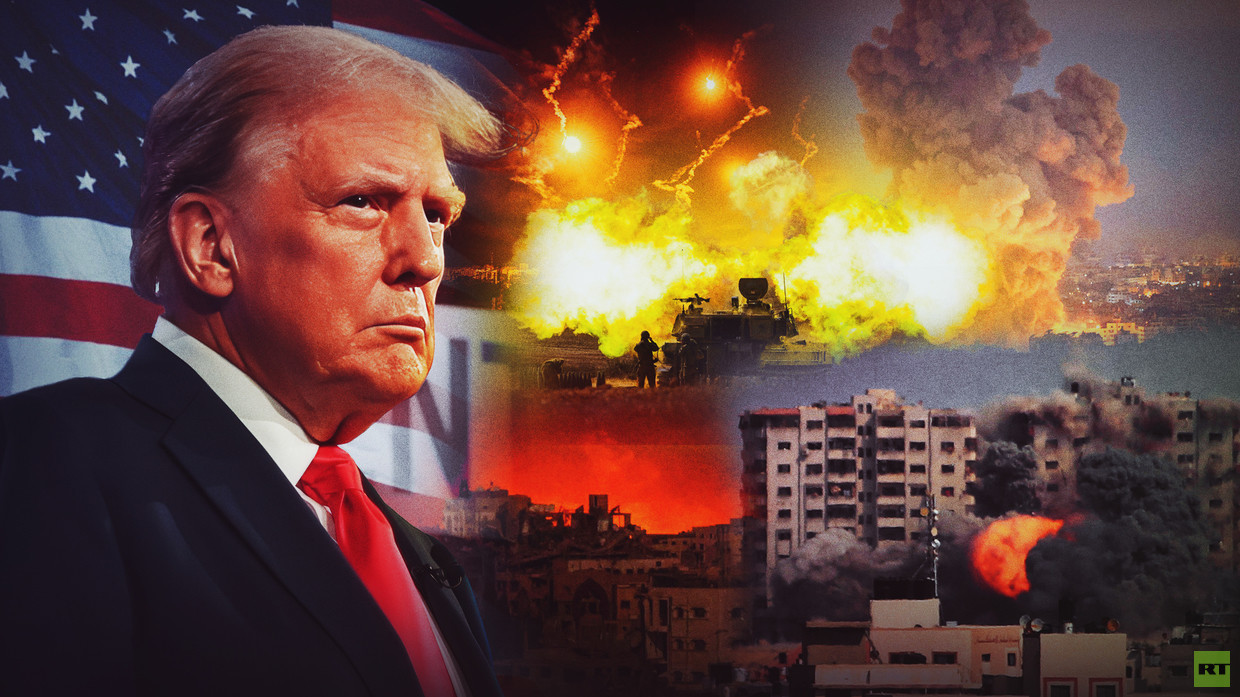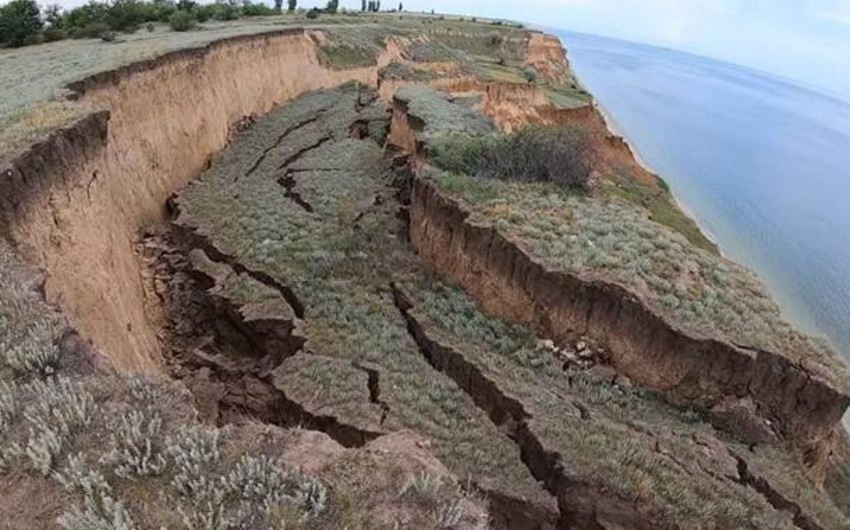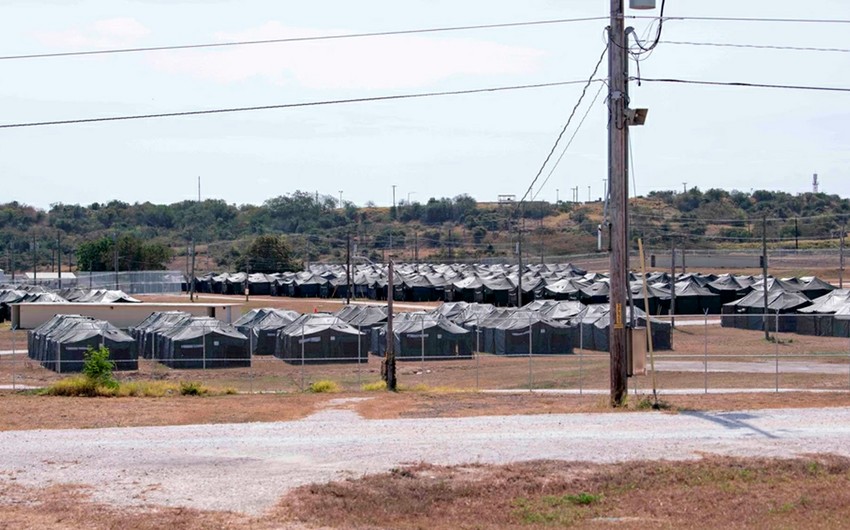Donald Trump's landslide victory has sent shockwaves through liberal circles in the US and Europe, but in many countries of the Middle East, his comeback has brought a glimpse of hope that wars could soon be over, economies restored, and stability returned.
Prior to winning the presidential race, the Republican candidate promised to end the war in Gaza. He vowed to bring the 101 hostages back, put a halt to the hostilities in Lebanon, and ensure that Iran and its proxies would not pose a threat to the region. When he returns to the White House, he will need to live up to the expectations.
Expanding the peace camp
That, however, will be no easy task. Abdullah Al-Junaid, a Bahrain-based political analyst specializing in the geopolitics of the Middle East and the Gulf, suggests Trump will need to pull many strings in Jerusalem to make Israel end the hostilities.
“Prime Minister Netanyahu will want a lot from Trump in exchange for agreeing to an end of Israel’s wars in Gaza and Lebanon. Revisiting the West Bank annexation could be one; securing security arrangements for Israel in Gaza and Lebanon could be another”.
n 2020, during his first term in office, Trump proposed the so-called Deal of the Century, a peace plan that aimed to resolve the decades-long Israeli-Palestinian conflict.
According to that initiative, which was rejected by the Palestinians and some conservative circles in Israel, Palestinians would be given an independent state, which would not include Jerusalem as its capital. Nor would it have access to the Jordan Valley, essential for their economy, or some key towns and cities.
The plan never came to fruition, with Trump leaving office in 2021. But with his return to power, it might be revived. Another initiative that could be put back on the table is the expansion of the so-called peace camp, and the establishment of diplomatic relations between Israel and Arab nations, most crucially Saudi Arabia.
The Biden administration has failed to produce any tangible results in this regard, but with Trump in power Netanyahu is hoping the tide might turn.
Al-Junaid says it will be a huge challenge.
“At the moment, Israel isn’t ready to meet the Saudis' most fundamental demand of a two-state solution, and Trump can’t pressure Netanyahu or any other Israeli prime minister into a deal. That doesn’t mean that principals can’t be agreed, but for that to happen, regional stability needs to be viewed as a regional issue first, and until it’s treated as such, nothing will work”.
Mohammed Marandi, a Tehran university professor and political analyst, agrees with the assessment that it would be hard to expand the peace camp to other Arab and Muslim nations.
According to a recent poll conducted in 16 Arab countries, including those that do have relations with Israel, the popularity of the Jewish state has been dealt a severe blow as a result of its aggression in Gaza. Marandi says this trend has only been intensified by the war in Lebanon and the actions of the IDF in the West Bank.
“Saudi Arabia and other countries in the region like Turkey, Jordan, Egypt and the Emirates, are all being severely criticized by their own people and people across the region because they are seen as either indifferent towards the Palestinians and the Lebanese, or as collaborating with the Israeli regime,” Marandi argued.
“Saudi Arabia might like to turn a blind eye to Israel’s genocidal attacks in Lebanon and the Holocaust in Gaza. But the more it tilts towards the Israeli regime, the more dangerous it becomes at home. So I think that will be a key problem for Trump. He will not be able to mobilize these oil-rich nations to support the Israelis as long as the atrocities in Gaza, Lebanon and the West Bank continue.”
Security concerns
Prime Minister Benjamin Netanyahu insists that his country will not stop the war until all goals are achieved. Those include the return of the hostages and Israel’s displaced residents in the north, as well as making sure Gaza and Hezbollah do not pose a threat to Israel’s security. The way Israel sees it, the Biden administration has done very little to address these concerns.
In the south, the Democrats have objected to the idea of Israel entering Rafah, which has become a stronghold for Hamas militants. They have also rejected the idea of Israel controlling the Rafah crossing, and the Philadelphi corridor through which Israel claims radical Palestinian groups have been smuggling arms, money and combatants.
In the north, the Biden administration has not achieved much either. From the standpoint of Israel, Amos Hochstein, Biden’s special representative who has been in charge of mediating between the sides, has failed to push Hezbollah north of the Litani river. With Trump soon to be in charge, Netanyahu will demand that this reality change. He will push for the creation of a buffer zone, the disarmament of Hezbollah, Israel's main rival, and he will also apply pressure on Washington to take a tougher stance on Iran, which the prime minister blames for instability in the region.
Mohammad Marandi, who participated in nuclear talks between world powers and Iran, has been dealing with US officials for years, and he suggests the president-elect might yield to that pressure.
During his first four years in office, Trump took a hawkish approach towards Iran. He sanctioned the Islamic Republic and those who dared to buy oil from it, he ordered the killing of Qassem Suleimani, one of the country’s top commanders and he slammed the door on the Joint Comprehensive Plan of Action, an agreement between Iran and the world powers that aimed to monitor Tehran’s nuclear program in exchange for an easing of sanctions.
Chances are high that he might opt for this approach again, but Marandi warns that it could spell trouble for the region and the world.
“In order for him to succeed as an American president and in order to end the economic hardships at home, Trump might want to decrease tensions with Russia and Iran,” he argues.
“If he fails to do so, the conflict might expand in the region and force the intervention of the United States. If that happens, oil and gas deliveries from the Gulf might stop and this, in its turn, might lead to a global economic meltdown, the consequences of which would be felt for decades to come. Millions of refugees will be flowing to the US and Europe. Nobody will be left untouched but the West will be the main loser in such a case,” Marandi said.
Al-Junaid agrees the repercussions might be dire, but believes that this time Washington will choose a more “balanced” approach to Iran, partially because it will need Tehran to settle the Russia-Ukraine conflict, and partially because Trump’s foreign policy goals stretch far beyond the region.
“Trump’s foreign policy challenges won’t be limited to peace in the Middle East or extending the Abraham Accords [signed between Israel, the UAE, Bahrain in 2020 - ed.] to include 20 more nations. Trump has vowed to end all wars, not to start new ones, and his main headache will be finishing the conflict in Ukraine”.
But Marandi is skeptical that “balance” will prevail.
“Such a scenario would be possible if Washington behaved rationally. The problem is that we have not seen the United States behaving in this manner when it comes to either Iran or Russia,” said Marandi.
Therefore, “I doubt there will be a balanced approach towards Iran because such an approach would mean normalizing relations, it would presuppose ending the sanctions, and ending US support for ethno-supremacism. That’s not something Trump is likely to do”.
Author: Elizabeth Blade,
Source: RussiaToday





.jpeg)

.jpeg)


